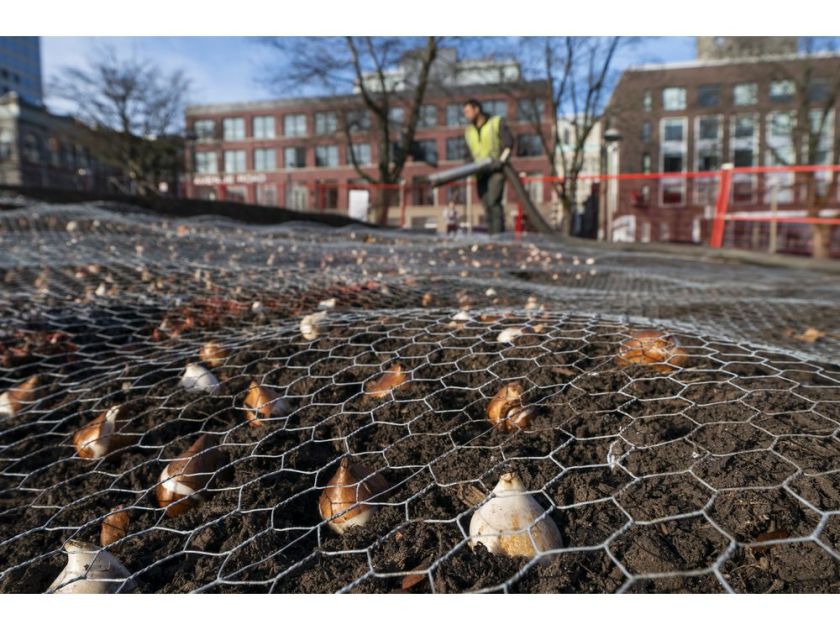Original Source: Vancouver Sun
Tulip bulbs represent more than flowers to the Dutch. Because of harsh conditions during the final winter of Nazi occupation, many had to eat tulip bulbs because they were starving.

Vancouver will be turning red next spring to mark the Canadian liberation of the Netherlands in 1945.
About 110,000 red tulip bulbs are being planted around the city to mark the 75th anniversary of the country’s liberation from Nazi occupation by Canadian soldiers during the Second World War.
An estimated one million tulip bulbs will be planted across the country to mark the final liberation that took place on May 5, 1945.
Adriana Zylmans, president of the Dutch Liberation 2020 Canadian Society, said tulip bulbs represent more than flowers for the Dutch. They became a symbol of liberation because of what happened during Hongerwinter — the hunger winter of 1944-45.
One of the coldest winters in memory froze canals in the Netherlands. In the country’s western provinces, the occupying Germans banned food shipments.
“They (the Dutch) were starving,” she said. “They resorted to eating tulip bulbs to survive.”
Zylmans said planting tulip bulbs are a way to “thank Canada and the many sacrifices that were made by families and veterans to help liberate the Netherlands.”
Bruce McDonald, superintendent of Sunset Nursery and the Bloedel Conservatory, said Vancouver park board gardeners are planting red Strong Love tulips because there wasn’t enough red Canadian Liberator tulips for the whole country. The two varieties look identical, he said.
(On the East Coast, the commemorative tulip bulbs are orange, the colour symbolizing the Netherlands and the Dutch royal family.)
McDonald said planting has just finished at Victory Square at Cambie and Hastings streets. The tulip bulbs have been planted in the shape of a poppy. They’ll also be planted in a poppy shape in the plaza by the Centennial Rocket at the south end of the Cambie Bridge.
“The other location that has a lot of meaning … is Mountain View Cemetery,” McDonald said. “We’re doing a huge planting there — probably the most bulbs will be going to that location.”
He estimated that as many as 30,000 bulbs will be planted under the cemetery’s maple trees in about 80 flower beds. When they bloom, they’ll create what he said will be a spectacular “big street of tulips” or grand allee.
The city-owned and operated Mountain View Cemetery is west of Fraser Street between 31st and 43rd avenues.
The bulbs are being covered with protective mesh to protect them from hungry rodents and rats, he said.
Red tulip bulbs will also appear elsewhere throughout the city in gardens, in traffic circles and corner bulges, as well as by Welcome to Vancouver signs. Homeowners have also bought red-and-orange tulip bulbs, so flowers will be appearing in gardens throughout Metro Vancouver as well.
The 110,000 red tulip bulbs are in addition to an estimated one million tulip, daffodil, hyacinth, crocus and muscari bulbs planted annually in parks around Vancouver.
More than 7,600 Canadian soldiers died liberating the Netherlands. About 2,300 Canadians are buried in the Groesbeek Canadian War Cemetery, the largest official Second World War cemetery in the Netherlands.
On Saturday, May 2, 2020, various cemeteries in Metro and around B.C. will hold public commemorative services to mark the 1945 liberation.
